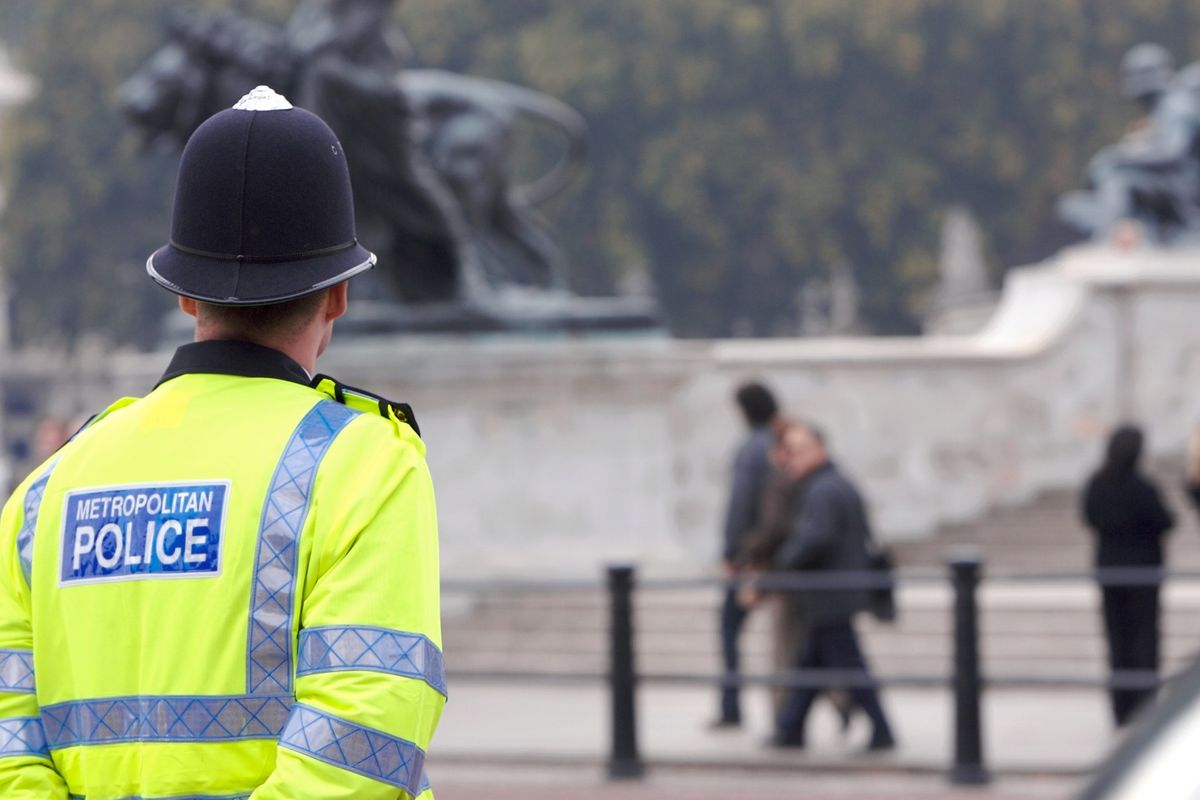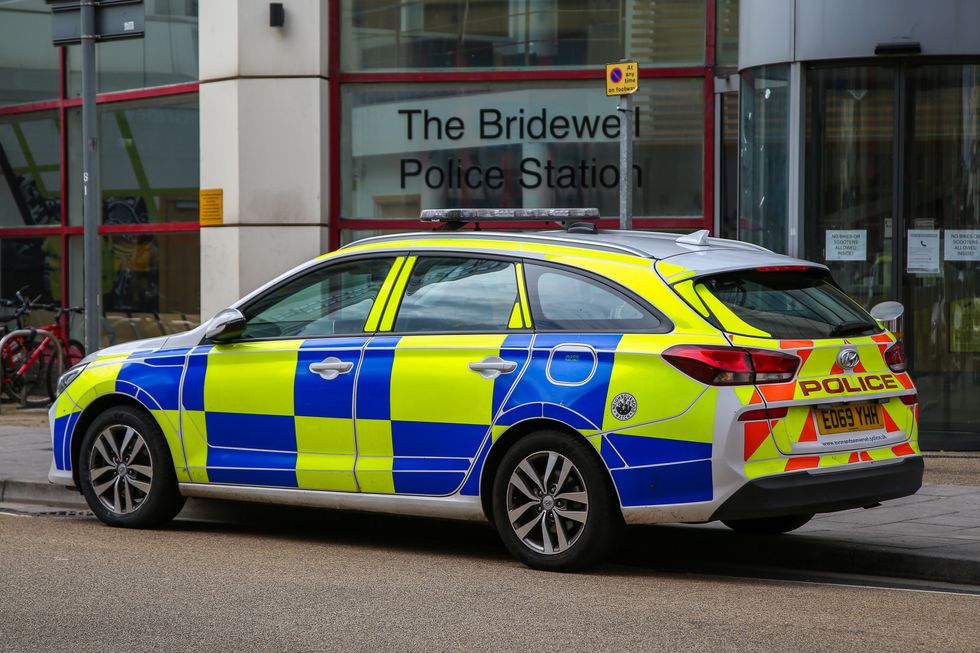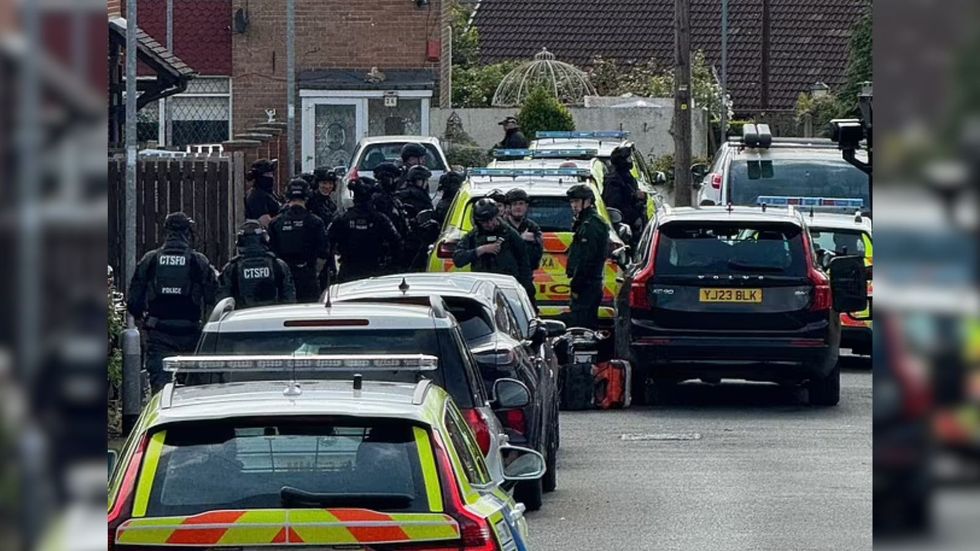
I am a police officer on the front line in one of our largest cities. There is perhaps one predominant cause of crime and dysfunction in this country – and it is barely being discussed during this general election campaign.
For a generation or more, there has been a collective wilful blindness to discuss it. It’s not drugs, it’s not mental health, it’s not alcohol, it’s not even knife crime, as terrifying as that is.
The cause is family dysfunction, and it’s deep rooted.
Part of the wilful blindness appears to stem from the profound personal connection we all have with this cause of crime. We all share the guilt for it in some way. Some describe it as an epidemic. It might be described as the original sin of our age.

Police officers repeatedly see the best and worst of society, we steadily observe the factors underlying the victims and offenders with whom we have contact. This cause hits me every day I work. Once seen, it can’t be unseen.
For at least fifty years there has been an insidious war fought against the family. The effects are intergenerational, and the tentacles extend to most of the debates which you might hear at the general election.
The family shapes everything in our society. The debates we hear in this election campaign around immigration, economic growth, even birth rate decline all are connected with our failure to protect the family.
Ten million Britons have been aborted since 1967. Imagine the shape of the population demographic if all those souls were in the workforce and supporting baby boomers into retirement. How would that have shaped the immigration debate?

Part of the problem I see as a police officer is entitlement and individualism. Both emanate from a lack of personal responsibility and associated moral formation, especially amongst men. Even in the last decade, it is evident how criminals have morphed from knowing their actions are wrong, to more recently believing there is something virtuous in their criminality.
In many instances, this is adolescent boys gaining prestige from gang leaders in lieu of other stable male role models, especially absent in the home. In these instances and others, minds are evidently contaminated by pornography, objectifying women. In this context, basic bonds of love are lost.
As a society, we are harvesting the sour fruits of family dysfunction. And whilst successive government policies have sought to address this from the edges, it is failing. The more central the policies (to name a few, Tax Free Childcare, Holiday Activities and Food Programme, the Healthy Child Programme, the Family Nurse Partnership programme, Start4Life programme), the more normative it is that the state pulls the levers, the more entitlement, and less chance of responsibility.
It’s worth reflecting for a moment on the State, of which, as a police officer, I am a part. The State has not always existed. If it didn’t, members of the public would undertake duties of public safety as enshrined in Peelian Principle number seven. Similarly, the family would remain the basic building block of society. Sir Humphrey’s, and most of us, cannot imagine life without the State. But we could perhaps be a little more discerning about whether it is truly serving families for the common good of all in society, or stepping into a void of its own making.
You might hear infrequent allusions to the family during this election. It is likely to be more ‘help’. These are mere sticking plasters which sound good and will help a few.
What you won’t hear is that we need a multigenerational correction to re-orientate society around the family. You won’t hear that the national debt needs dealing with to allow the next generation to breathe and not suffocate. You won’t hear that planning will be automatically permitted for those seeking to extend their houses for multi-generational living and to help tackle social care. You won’t hear that for the common good, divorce and abortion will be far harder.
You won’t hear that the state will lower taxes, and do so disproportionately for married couples and those caring for parents in their home. You won’t hear that it is ideal that one parent at most should be in employment while children are in their formative years. You won’t hear about local community taxes for local social enterprises to provide greater support for families where they live.You won’t hear about deregulation to support small family businesses to start and thrive.
Neither socialism nor capitalism have the family in mind. Yet the family is core to the functioning of our society. It is certainly paramount for a lower crime society. It’s just too sensitive and not politically correct to discuss. We are wilfully blind.
from GB News https://ift.tt/nbuX6Jj

I am a police officer on the front line in one of our largest cities. There is perhaps one predominant cause of crime and dysfunction in this country – and it is barely being discussed during this general election campaign.
For a generation or more, there has been a collective wilful blindness to discuss it. It’s not drugs, it’s not mental health, it’s not alcohol, it’s not even knife crime, as terrifying as that is.
The cause is family dysfunction, and it’s deep rooted.
Part of the wilful blindness appears to stem from the profound personal connection we all have with this cause of crime. We all share the guilt for it in some way. Some describe it as an epidemic. It might be described as the original sin of our age.

Police officers repeatedly see the best and worst of society, we steadily observe the factors underlying the victims and offenders with whom we have contact. This cause hits me every day I work. Once seen, it can’t be unseen.
For at least fifty years there has been an insidious war fought against the family. The effects are intergenerational, and the tentacles extend to most of the debates which you might hear at the general election.
The family shapes everything in our society. The debates we hear in this election campaign around immigration, economic growth, even birth rate decline all are connected with our failure to protect the family.
Ten million Britons have been aborted since 1967. Imagine the shape of the population demographic if all those souls were in the workforce and supporting baby boomers into retirement. How would that have shaped the immigration debate?

Part of the problem I see as a police officer is entitlement and individualism. Both emanate from a lack of personal responsibility and associated moral formation, especially amongst men. Even in the last decade, it is evident how criminals have morphed from knowing their actions are wrong, to more recently believing there is something virtuous in their criminality.
In many instances, this is adolescent boys gaining prestige from gang leaders in lieu of other stable male role models, especially absent in the home. In these instances and others, minds are evidently contaminated by pornography, objectifying women. In this context, basic bonds of love are lost.
As a society, we are harvesting the sour fruits of family dysfunction. And whilst successive government policies have sought to address this from the edges, it is failing. The more central the policies (to name a few, Tax Free Childcare, Holiday Activities and Food Programme, the Healthy Child Programme, the Family Nurse Partnership programme, Start4Life programme), the more normative it is that the state pulls the levers, the more entitlement, and less chance of responsibility.
It’s worth reflecting for a moment on the State, of which, as a police officer, I am a part. The State has not always existed. If it didn’t, members of the public would undertake duties of public safety as enshrined in Peelian Principle number seven. Similarly, the family would remain the basic building block of society. Sir Humphrey’s, and most of us, cannot imagine life without the State. But we could perhaps be a little more discerning about whether it is truly serving families for the common good of all in society, or stepping into a void of its own making.
You might hear infrequent allusions to the family during this election. It is likely to be more ‘help’. These are mere sticking plasters which sound good and will help a few.
What you won’t hear is that we need a multigenerational correction to re-orientate society around the family. You won’t hear that the national debt needs dealing with to allow the next generation to breathe and not suffocate. You won’t hear that planning will be automatically permitted for those seeking to extend their houses for multi-generational living and to help tackle social care. You won’t hear that for the common good, divorce and abortion will be far harder.
You won’t hear that the state will lower taxes, and do so disproportionately for married couples and those caring for parents in their home. You won’t hear that it is ideal that one parent at most should be in employment while children are in their formative years. You won’t hear about local community taxes for local social enterprises to provide greater support for families where they live.You won’t hear about deregulation to support small family businesses to start and thrive.
Neither socialism nor capitalism have the family in mind. Yet the family is core to the functioning of our society. It is certainly paramount for a lower crime society. It’s just too sensitive and not politically correct to discuss. We are wilfully blind.



0 Comments
Don't share any link